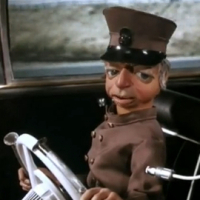Loopy Pro: Create music, your way.
What is Loopy Pro? — Loopy Pro is a powerful, flexible, and intuitive live looper, sampler, clip launcher and DAW for iPhone and iPad. At its core, it allows you to record and layer sounds in real-time to create complex musical arrangements. But it doesn’t stop there—Loopy Pro offers advanced tools to customize your workflow, build dynamic performance setups, and create a seamless connection between instruments, effects, and external gear.
Use it for live looping, sequencing, arranging, mixing, and much more. Whether you're a live performer, a producer, or just experimenting with sound, Loopy Pro helps you take control of your creative process.
Download on the App StoreLoopy Pro is your all-in-one musical toolkit. Try it for free today.
Movie and TV music
Something I read here made my mind go off on something of a tangent, as I have been listening more closely to movie and TV music lately. Particularly incidental music.
Does anyone else think that there’s been a shift in how music is presented in movies and TV? Not just stylistic changes, but how often it is used, and how it is mixed?
When I was younger I seem to recall big themes for the start of a movie, and subtle music queues throughout. Ow music can be really in your face, and it makes me stop and take notice of the music as a distraction as much as anything else.
I know this is going to be unpopular…but one example is Murray Gold in Doctor Who - it always seems like he’s beating people’s ears with a hammer, and asking the sound mixer if he can compress things more so that it’s louder.
Is it me, or does anyone else think that the music is very often trying to outperform the visual performance?



Comments
Dr Who is actually a brilliant case study for this due to its longevity, I wonder if any research has been done?
In the classic era with incidental music being provided by the radiophonic workshop the music was definitely in support of the action, perhaps a flutey lead, or a spicy chord.
There were severe technological and budgetary limits.
Very little polyphony and sparse analog sounds, just like the background hums and bleeps of the analog synth foley.
https://youtube.com/watch?v=k-YbsiU9bUY
Nowadays composers have comparatively infinite choices for arrangement and the new Dr Who introduced the orchestral approach, and copied the contemporary more bombastic action movie style.
The difference between TV and movies in terms of visual spectacle is almost indistinguishable nowadays so perhaps not surprising that musical styles have merged too.
And here's the research. Haven't read it all yet, but it summarises the historical differences between movie and tv and discusses the new approach, which as i theorise above is a convergence between movie and tv both visually and sonically.
https://academia.edu/16413118/Adventures_in_Time_and_Sound_Leitmotif_and_Repetition_in_Doctor_Who
Part of the rational for this larger sound is once again rooted in the logic of television
broadcasting. Far from the “unheard melodies” of film, music in the first couple of series is often foregrounded in the mix, sometimes even at the expense of dialogue. Former show runner Russel T. Davies saw this as a method of keeping the attention of the ever important fickle
television viewer: “We’re drama competing with the sheer noise of light entertainment shows.
We’ve got to match them. Audiences will stay with the louder show.”
Furthermore, while production values of Doctor Who have risen dramatically since the program’s original run, so have the expectation of spectators.
So, the loudness war returns?
That seems to be the case with TV especially, but some movies are just as bad.
Movie and TV music has undergone quite a transformation, and it's not just about the style but the overall approach. Back in the day, we used to have these memorable, epic themes at the start of movies, with subtle music cues sprinkled throughout. It was all about enhancing the experience without stealing the show.
If you're still looking for info on this topic, I'd suggest checking out some of the best movies out now. You might find examples where the music and visuals strike that perfect balance, making for a truly immersive experience.